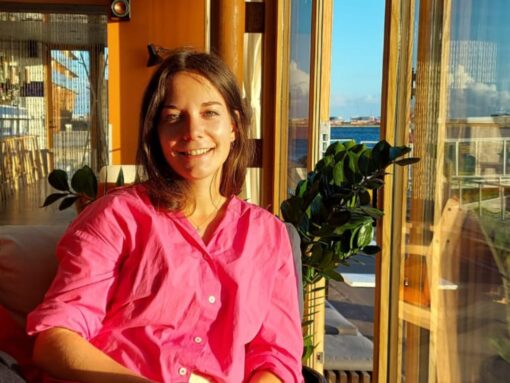Most of you will know the dreaded sensation of staring at a blank page at the beginning of a writing assignment. However, if the blank page stares back at you for days or even weeks, it becomes a problem. The Center for Teaching and Learning (CTL) has compiled some tips on how to overcome writer’s block.
Most people who write texts know the following situation: You do not make any headway, you get frustrated, the page is still empty and blank. In most cases, phases of sluggish progress are part of the writing process. These phases often occur when you have to put new thoughts into words or when you begin with new work steps. You have a writer’s block in the literal sense if you do not progress in your writing for a long time and suffer from this failure. Otherwise, problems with, for example, beginning, continuing or finalising a text are called ‘writing difficulties’, which also includes classical procrastination (postponing tasks).
At the beginning of their studies, many students are confronted with the fact that academic writing is considered a prerequisite and that they, therefore, often get insufficient instructions. This can be frustrating and students often blame themselves when they do not make progress straight away. The further the students’ progress in their studies, the harder it might seem to cope with this situation. In this context, Otto Kruse, who conducts research on writing, talks about consolidated initial problems.
In such a situation, it is important not to despair. Academic writing cannot be considered a prerequisite. 
Six tips on learning how to write
- Writing requires routine: By regularly putting thoughts into writing, you train your ‘writing muscle’. Compiling a work journal in which you regularly note down subject-specific questions, academic ideas, hints you got in courses or thoughts on texts can be very helpful. Further helpful strategies are, for example, morning pages or free writing: In morning pages, you express your thoughts in writing when you start your work. In free writing, you try to write continuously for a pre-defined period of time.
- Writing requires exchange: Regularly talk to other students about your texts, as well as about the challenges you face during the writing process. You will soon notice that you are not alone. You can get in touch with other students through self-organised writing groups or writing groups organised by the CTL.
- Writing requires feedback: Get feedback on your texts from fellow students and teachers and ask for a detailed discussion of your texts. Ask what worked well and try to understand why something is criticised.
- Writing requires encouragement: Most people learn best when positive approaches are used. Be aware of your strengths and do not focus on your weaknesses. Reward yourself and get encouragement from your peers in writing groups. This will also boost your motivation.
- Writing requires self-observation: Observe yourself to find out under which conditions you can write well and how much time you need for individual work steps. You can use this self-management competence for other writing projects as well. During writing, you will often experience feelings that might not seem beneficial to the writing process. For example, feelings relate to the negative writing experience, the working conditions or the importance of the text for your own life (as in the case of theses). Try to identify the source of the uneasy feelings and, if applicable, consider them as a clue about what you should reconsider. Also take note of any positive feelings you have and take them seriously, for example, when you like what you have written.
- Writing requires time: Otto Kruse says that it takes a few years of practice to be secure in academic writing. Therefore, be patient with yourself. Also make use of the offers of the CTL, such as writing mentoring or writing consultation, to deal with academic writing intensively.
Five tips for specific writing assignments
If you are facing a specific writing assignment, the following tips can help you:
- Prepare well for the writing assignment: Clarify the formal and content-related framework before you start writing: What formal rules and standards do you have to observe? Have you discussed the assignment with the teacher? Have you agreed on the goals and the approach with the teacher?
- Start writing: A warming-up phase often helps to really get into the writing. Start with those parts of the text that seem easiest to you. You do not have to start with the introduction. It can also be useful to draw up a table of contents that indicates, in keywords, what each section is about. Try to start writing directly and do not procrastinate.
- Set yourself realistic and specific goals: The overarching goal of your writing project becomes manageable and straightforward if you formulate sub-goals. Set yourself specific sub-goals, such as to work on the chapter ‘Methods’ for 3 hours, to draw up the introduction for 2 hours and then to write 1 page of the introduction. Reward yourself as soon as you have reached a sub-goal. Also, here and here you can find our tips about time management and boosting your motivation.
- Shut off your critical inner voice: When you start writing, try not to let thoughts about wording or grammar or content-related questions slow you down. Note down your doubts in the text. You can elaborate on them when you edit and proofread the text. While writing, try to remind yourself of the assignment again and again. Do not lose yourself in details – perfectionism can be counterproductive.
- Take a step back regularly: Deliberately schedule breaks in which you do not concern yourself with the text. Taking a break can help you adopt different and productive perspectives on what you have already written when you return to the text, for example, after lunch or the next day.
Even though completing a writing assignment is always a singular event, academic writing is a process that entails development steps and that requires time. Be patient with yourself, make use of helpful offers and talk to others about the writing and the associated processes. Over time and with the experience you gain, academic writing will become easier. Turn your frustration with writing into a passion for writing.
Here are some reading recommendations:
Helga Esselborn-Krumbiegel: Tipps und Tricks bei Schreibblockaden, Paderborn 2015. (Tips and tricks to overcome writer’s block)
Otto Kruse: Keine Angst vor dem leeren Blatt. Ohne Schreibblockaden durchs Studium, Frankfurt am Main 2007. (Do not fear the blank page. Mastering your studies without writer’s block)
Judith Wolfsberger, Frei geschrieben. Mut, Freiheit und Strategie für wissenschaftliche Abschlussarbeiten, Wien 2010. (Written freely. Courage, freedom and strategy for academic theses)
Want to read more? 😊 Check out our blog posts with the following topics:



